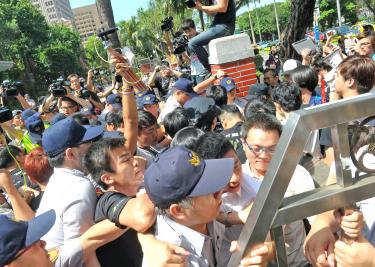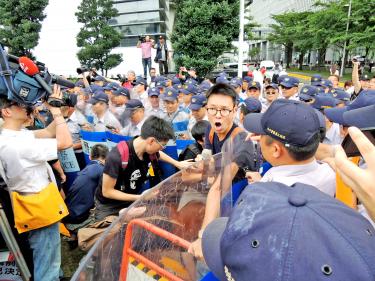Dozens of activists vaulted the front gate of the Legislative Yuan in Taipei yesterday morning in protest over the controversial free economic pilot zones draft bill being put on yesterday’s legislative agenda, but were dispersed by police, who handcuffed and arrested some of the demonstrators about an hour after they jumped the fence.
A group of about 30 people, representing at least five activist groups, including the Restoration of Taiwan Social Justice, the Wing of Radical Politics, the Alliance of Referendum for Taiwan and Democracy Kuroshio, climbed over the front gate before a plenary session that was scheduled to begin at 9am to protest against the Chinese Nationalist Party (KMT) placing the free economic pilot zones bill on the agenda and its alleged intention to ram it through.



 The News
The News









